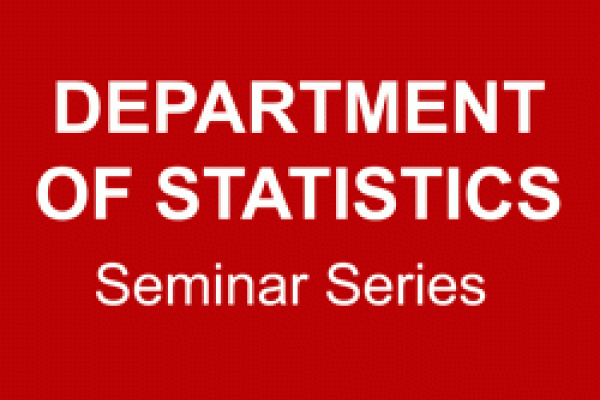
Title
Change–Point Estimation Under Adaptive Sampling
Speaker
Moulinath Banerjee, University of Michigan
Abstract
We study change–point estimation using a two–stage (generalizable to multi–stage) sampling design in a regression setting Y = f(X) + ². For the talk, the underlying regression function is assumed to be parametrically specified, with a single unknown jump discontinuity of interest. The experimenter is given a budget of n points to make inference on the change–point. The two–stage procedure works as follows. Given n points, a fraction, say p, of the points, is sampled uniformly from the domain of the covariate and response values are obtained at the sampled points. An initial estimate of the change–point is then obtained, say, using least squares. At stage two, an appropriate neighborhood of the initial estimate is chosen, the remaining fraction of points are sampled uniformly from this neighborhood and response values are generated, as before. The estimate of the change–point is then updated using the available covariate–response values from stage two. We show that by choosing an appropriate neighborhood (that shrinks with n), it is possible to accelerate the rate of convergence of the updated estimate beyond the usual n−1 rate (that is obtained when all points are sampled at once from the domain according to any pre–specified density) to almost n−2. The asymptotic distribution of the accelerated estimate is shown to be given by the minimizer of a compound Poisson process. Simulation studies are used to compare the two–stage procedure with one–stage procedures that incorporate prior information about the location of the change–point.
This work is joint with Yan Lan and Professor George Michailidis from University of Michigan.
Meet the speaker in Room 212 Cockins Hall at 4:30 p.m. Refreshments will be served.
